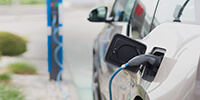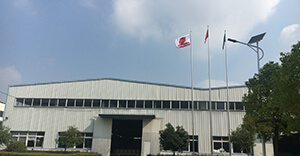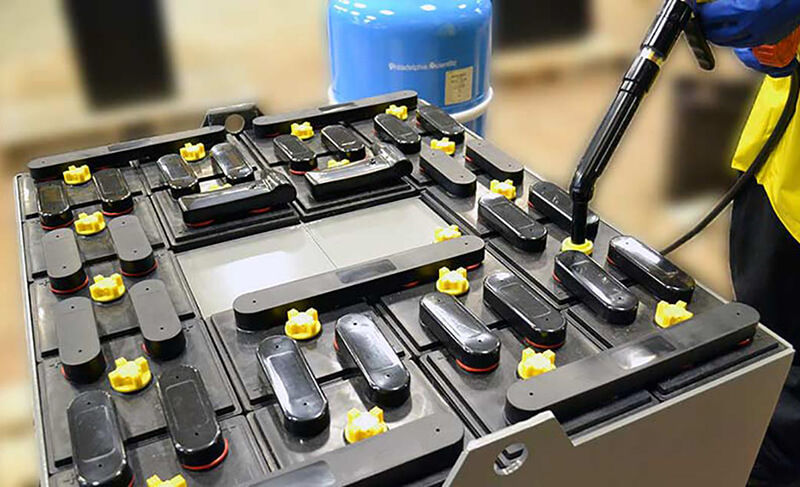Forklift Battery Watering: Everything You Need to Know
|
There is no question that forklift batteries are a vital part of keeping your business moving. And with today’s ever-increasing lead prices, it doesn't pay to continually purchase new batteries. Even though forklift batteries are a major contributor to your lift trucks' life and productivity, the maintenance of these batteries is often a second thought until it is too late. When a lift truck battery is not properly maintained their life is greatly reduced and their run hours begin to get cut shorter and shorter. This will ultimately result in increased downtime and decreased productivity. However, with proper maintenance, you could increase battery life by up to 25%. Watering batteries is one of the most important tasks related to routine battery maintenance and if not done properly can lead to poor battery performance, shorter battery life, and equipment downtime. As a lead-acid battery is used, water evaporates and needs to be replaced regularly. Neglecting to replace the water will shorten battery life and affect forklift motor brushes. Without proper battery maintenance, your operation could come to a standstill. So why aren’t batteries being maintained? The answer is simple: Not only has the importance of battery maintenance been poorly understood but watering each battery by hand is a dangerous hassle that can take upwards of 20 minutes per battery. However, in many cases, companies are not properly watering their forklift batteries. When they aren’t filled over periods of time, it can lead to plates drying out and a higher concentration of acid in the remaining electrolyte. Overall, battery maintenance is a critical element in keeping your lift truck fleet up and running at an optimum level. To help optimize the investment you make in your batteries, I answer some of the most common questions about proper battery watering techniques in this blog post. When should I water my battery? Batteries should be watered after a full charge/equalize charge. This is when the water level in the battery is at its highest level and should then be topped off. Watering at the wrong time can lead to serious problems. If watering is performed when the battery is in a partial state of charge or discharge, acid level comes up and it will boil over when charging. Electrolyte levels rise when charged, and filling after the charge helps prevent the overflows that cause acid-related damage and overheating. What kind of water should I use in my battery? Quality of water supply and water pressure are critical to maintaining the health of your battery. Deionized water is recommended unless water has been tested and meets standards; however, some water sources may meet the standards for purity. There are devices you can purchase to test the quality of your water. If your water contains over 100 parts per million of non-dissolvable material, it’s recommended that you use de-ionized water. City and well water contain minerals and contaminants that should not be in the battery because they can damage it and cause malfunctioning of water systems. If the water pressure is not correct and a single-point watering system is being used, the valves do not operate properly resulting in over or under filled cells. What can I do to ensure my forklift batteries are properly watered? ● Assign battery watering to one person in your organization or per shift. This eliminates any confusion about who or when the battery was watered. ● Some single-point watering system companies offer mobile phone apps to help track watering. ● Although they’re not foolproof, watering monitors take the guesswork out of when to fill a battery. They send a warning when batteries need watering, keeping them in ready condition, and eliminating the need for unnecessary checking. Battery Watering Monitors ● Even if you have a watering system, it’s still necessary to manually inspect the system to ensure that it’s working properly. ● In small operations, a simple battery maintenance checklist can be used. ● Always follow the proper maintenance guidelines included in your forklift battery operations manual. Conclusion Make sure watering is a featured part of your battery maintenance program and enjoy the benefits of a healthy forklift battery! |














